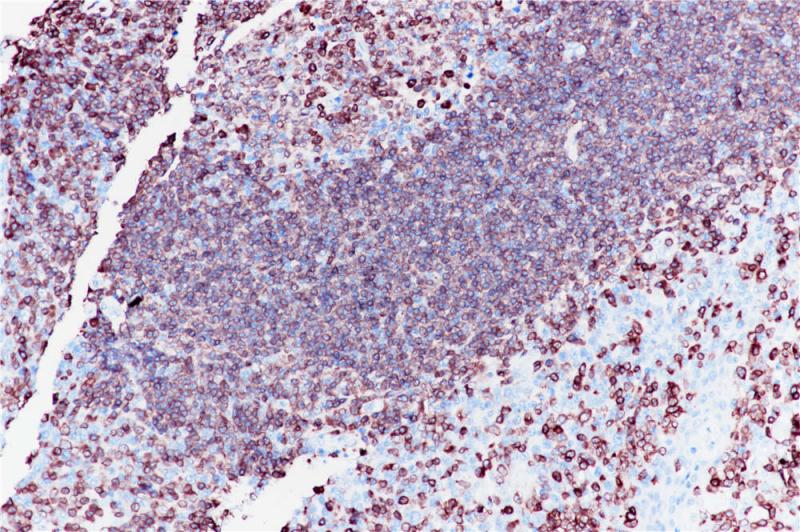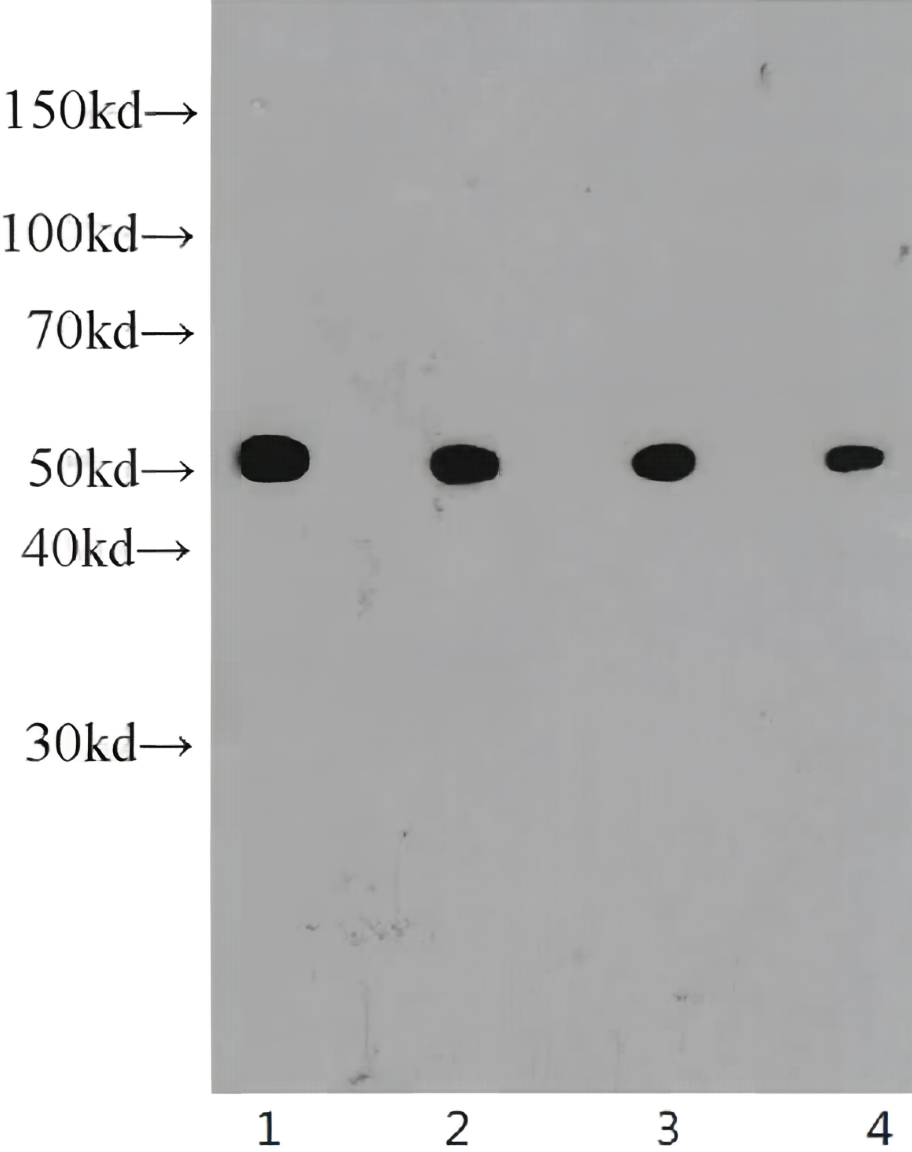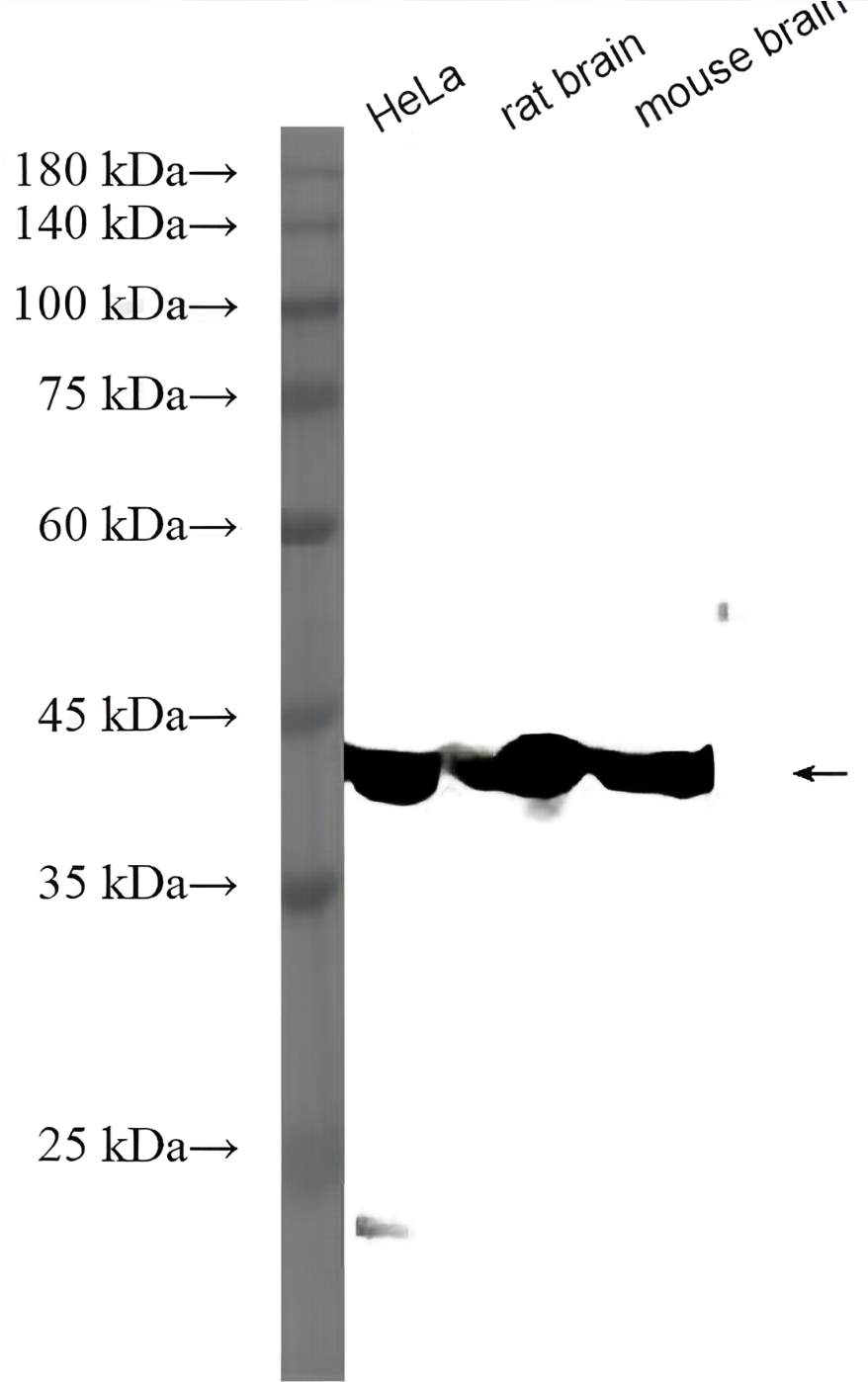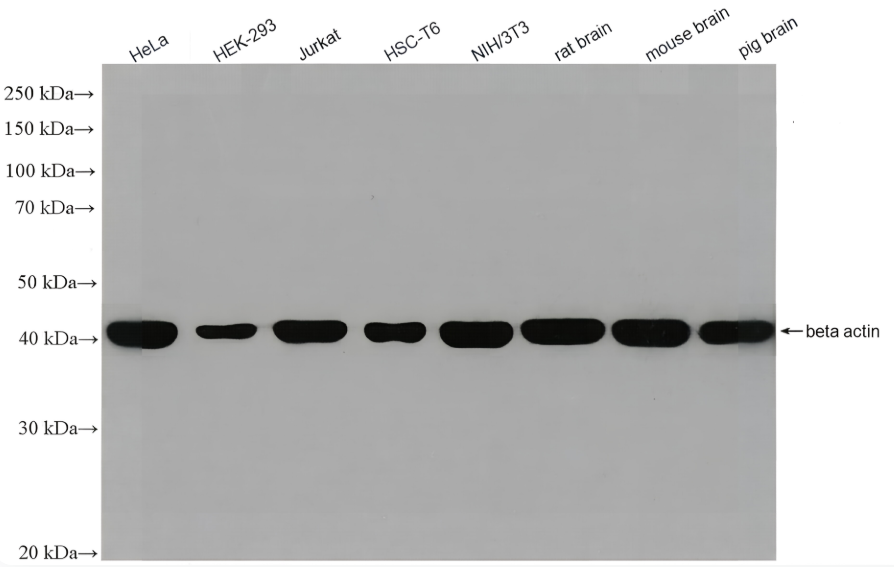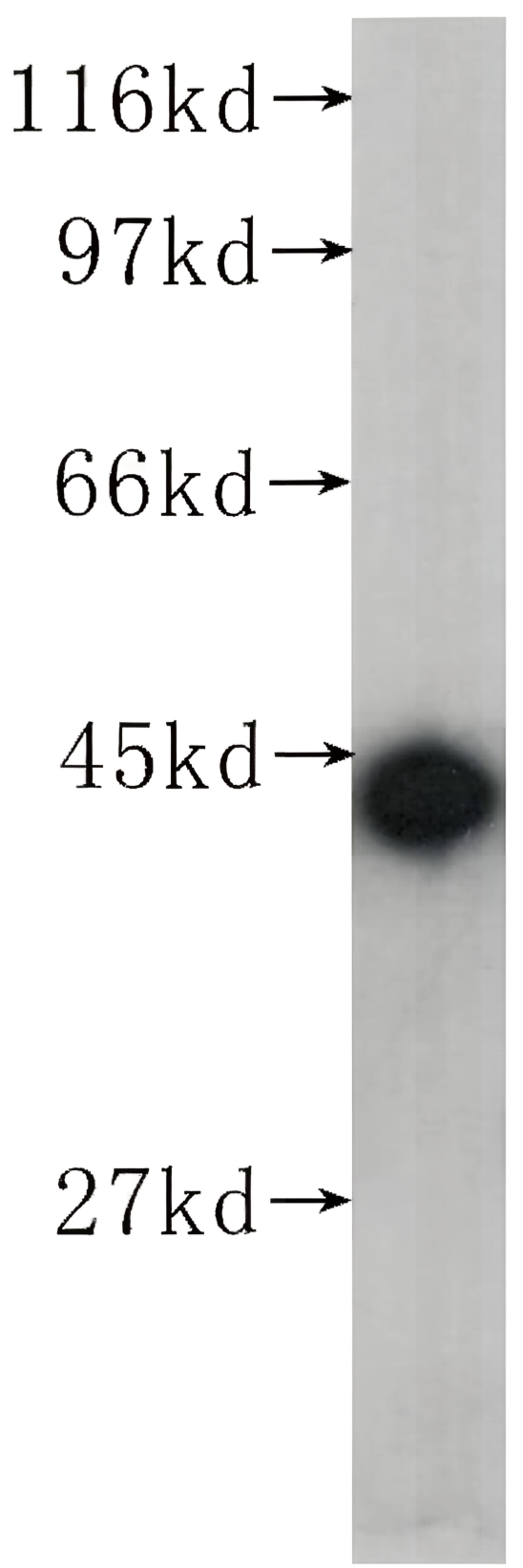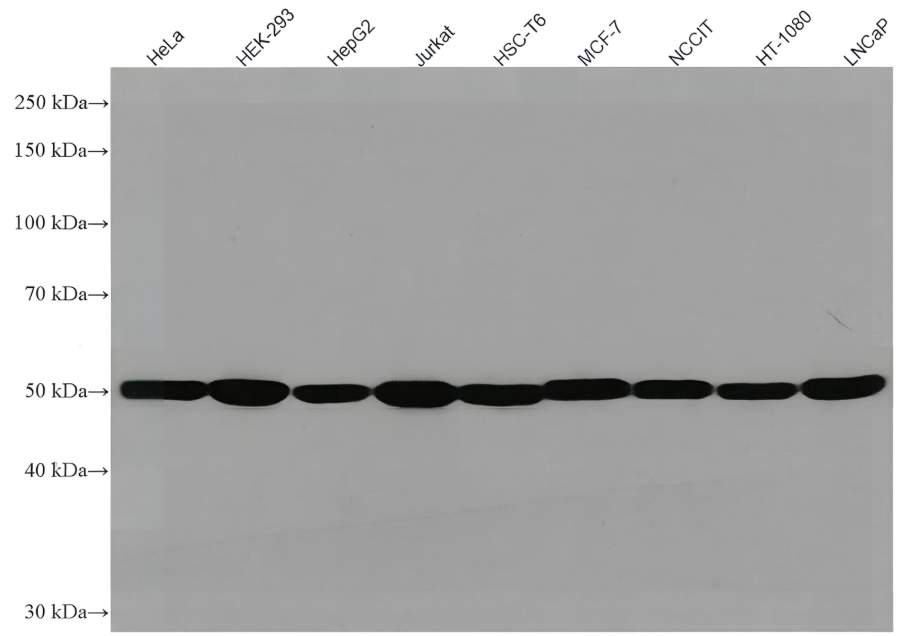CD79a Rabbit Monoclonal Antibody(ARB914)
Cluster of differentiation CD79a also known as B-cell antigen receptor complex-associated protein alpha chain is a protein that in humans is encoded by the CD79A gene. The CD79a protein together with the related CD79b protein, forms a dimer associated with membrane-bound immunoglobulin in B-cells, thus forming the B-cell antigen receptor (BCR), and plays multiple and diverse roles in B cell development and function. CD79a protein is expressed in virtually all mature and immature B cells and the majority of B-cell neoplasms, including precursor B–acute lymphocytic leukemia (pre-B–ALL), L and H lymphocyte predominance Hodgkin’s lymphoma, and many plasma cell tumors. Therefore, antibodies to CD79a are useful in the differential diagnosis of B-cell neoplasms from T-cell neoplasms or myeloid neoplasms, or L and H lymphocyte predominance Hodgkin’s lymphoma from classic Hodgkin’s lymphoma. In addition, CD79a is a useful marker in the diagnosis of precursor B–acute lymphoblastic leukemia (pre-B–ALL) because many of these tumors are negative for other B-cell markers, such as CD20 and CD45RA.
| Application | Dilution Ratio |
|---|---|
| IHC | 1:100-1:200 |
| Predicted Molecular Wt | 25kDa |
| Species Cross-reactivity | Human |
| Applications | IHC-P |
| Purity | ProA affinity purified IgG |
| Form | Liquid |
| Swissprot ID | P11912 |
| Subcellular location | Membrane |
| Recommended method | Heat induced epitope retrieval with Tris-EDTA buffer (pH 9.0), primary antibody incubate at RT (18°C-25°C) for 30 minutes. |
| Immunogen | Synthetic peptide corresponding to CD79a residues within aa1-100 of CD79a. |
| Storage Buffer | PBS 59%, Sodium azide 0.01%, Glycerol 40%, BSA 0.05%. |
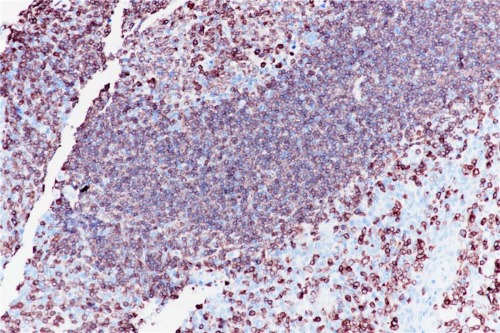
Immunohistochemical staining of human tonsil tissue using CD79a Rabbit Monoclonal Antibody (ARB914).
 New Products
New Products




